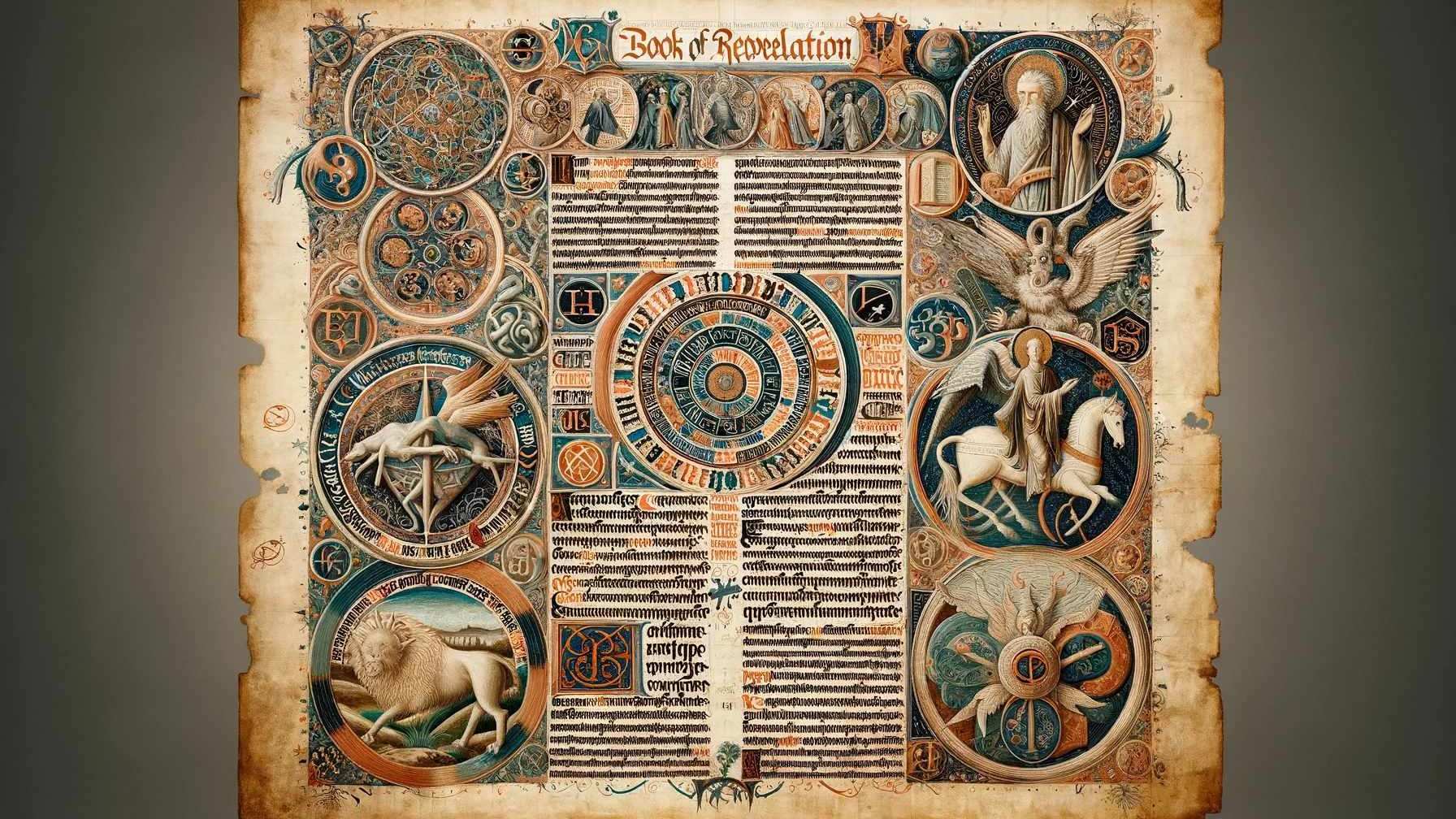Home>Christian Resources>What Is The Shortest Book In The Bible?


Christian Resources
What Is The Shortest Book In The Bible?
Modified: January 9, 2024
Ericka Andersen, an editor at Christian.net, expertly merges digital strategy with content creation, focusing on faith and societal issues. Her communication skills enhance the platform's engaging narratives, fostering meaningful dialogue on belief's impact on society.
The shortest book in the Bible consists of 14 verses and 299 words, an epistle written by John the Evangelist to a man named Gaius. Here's an in-depth look.
(Many of the links in this article redirect to a specific reviewed product. Your purchase of these products through affiliate links helps to generate commission for Christian.net, at no extra cost. Learn more)
The Bible is composed of 66 books in total from the Old Testament to the New Testament. The New Testament has 27 books while the Old Testament contains 39 books. Each of these books and every word of it are alive and powerful for these were all God-breathed (2 Timothy 3:16-17). Each book of the bible is important no matter the length of them. Even the shortest book in the bible contains compelling wisdom from the Apostle John.
The Third Epistle of The Apostle John (3 John)
The shortest book of the bible is the third epistle of Apostle John to a man named Gaius. It followed the first and second epistle written for the churches in Asia Minor and to a lady and her family, consecutively. It was believed that John wrote the third epistle at the same time or soon after he wrote the second epistle. Next on the list of the shortest book in the Bible was 2 John. These two epistles were personal letters to specific persons. The second epistle was written for a lady and her family while 3 John for the man on the church of Pergamum.
Composed of solely one chapter and 14 verses, this shortest book in the Bible has only 219 words in the original Greek language and 299 words in the English language.
Author of the Book

Photo by nothingintherulebook
John, the beloved, is one of the twelve apostles of Jesus Christ. He was the youngest of all apostles. He was also the last surviving original disciple of Jesus. Of the twelve disciples of Christ, John was the only one who died of natural causes while others were tortured to death. John wrote five of the sixty-six book s of the bible. He wrote the Gospel of John, 1 John, 2 John, 3 John which is the shortest book in the Bible, and Revelation, the last book of the Bible. The Apostle John had written the last book of the Bible on the island of Patmos where he was exiled and spent the latter years of his life.
John with his brother the Apostle James, are the sons of Zebedee and Salome. They were both fishermen before they were called by Jesus into His ministry. While John was the last remaining apostle, his brother James was the first apostle to die among the twelve for his beliefs.
Originally, John was a follower of John the Baptist before Jesus called him to become an apostle. He was mentioned as “the disciple whom Jesus loved” in John 21:20. The Gospel of John mentioned this phrase and the term ‘beloved apostle’ referring to him six times. In his writings, John talked about love several times. The love that is in Christ Jesus.
In the first verse of the shortest book in the Bible (3 John 1:1), John referred to himself as “The Elder”. This depicts the authority and position of the Apostle. It also conveys to the one he was writing the letter that he was referring to himself. He was a prominent leader in the early Christian Church and made a vital role in church history.
Background

Photo by Pixabay
Around AD 90-95 John composed the shortest book of the bible when he was at Ephesus. However, this is debatable as some scholars believe that the book was composed on the Island of Patmos instead. This epistle was directly written for Gaius, the bishop to the church of Pergamum. This shortest book of the Bible is one of the few books written for a specific individual. At the time John was writing this letter to Gauis, the church of Pergamum was facing problems with the city itself. Mentioned in the Book of Revelation (Revelations 2:12), this city was labeled it as the city of Satan because of its pagan practice and sexual immorality.
John had exceedingly high regards for Gaius for his faith and support for Christian missionaries. The hospitality to brothers and sisters in Christ is the central focus of this book. 3 John verses 1-4 described Gaius as John’s beloved friend and he loves in truth.
3 John 1:1-2
“The elder to the beloved Gaius, whom I love in truth. Beloved, I pray that all may go well with you and that you may be in good health, as it goes well with your soul.”
There are other names mentioned in this shortest book in the bible. One named Demetrius who set John as an example for Gaius because of his good works and faith. Diotrephes, on the other hand, showed an unpromising character towards his hospitality.
He repressed the authority of the Apostle John and talked wicked things about him. Diotrephes did something worse, he stopped other Christians from going to Church.
3 John 1:9-10
“I have written something to the church, but Diotrephes, who likes to put himself first, does not acknowledge our authority. So if I come, I will bring up what he is doing, talking wicked nonsense against us. And not content with that, he refuses to welcome the brothers, and also stops those who want to and puts them out of the church.”
Key Takeaways From The Shortest Book of The Bible

Image by Wikipedia.com
3 John 1:11
“Beloved, do not imitate evil but imitate good. Whoever does good is from God; whoever does evil has not seen God.”
The shortest book in the Bible reminds us to imitate only those that are good and pleasing before God. Verse 11 tells us that does who do good are of God and those who do not are yet to encounter Him. For how many times in the Bible, other apostles particularly Paul also urged other believers to imitate them as they imitate Christ. As followers of Christ, we are called Christians. Christians live to the teachings and examples of Jesus in the Scripture.
John gave us two examples in the name of Demetrius and Diotrephes to see who we should follow. Obviously, we are not to emulate Diotrephes’ actions and response toward his leader, his brothers, and sisters in faith. Jesus commanded his disciples to love one another. In the gospel of John, it is also said, “A new commandment I give to you, that you love one another: just as I have loved you, you also are to love one another. By this, all people will know that you are my disciples if you have love for one another”.
3 John 1:3-4
“For I rejoiced greatly when the brothers came and testified to your truth, as indeed you are walking in the truth. I have no greater joy than to hear that my children are walking in the truth.”
To walk in the truth means walking in accordance to the will and Word of God. When apostle John rejoices to see his fellow ministers walk in truth, how much more it is for God? He longs to see his children live a righteous life and it gives pleasure to His name. The reason why John commended Gaius was because of his faithfulness and endeavor for the ministry.
3 John 1:5-8
“Beloved, it is a faithful thing you do in all your efforts for these brothers, strangers as they are, who testified to your love before the church. You will do well to send them on their journey in a manner worthy of God. For they have gone out for the sake of the name, accepting nothing from the Gentiles. Therefore we ought to support people like these, that we may be fellow workers for the truth.”
It is impossible to love God without loving his church. The best way to show our love for the church is to show our support for each other. It can be through prayer, financial support, encouragement, and more. Whatever it is, it is the love in our hearts that counts.
The third epistle of John may be the shortest book of the Bible but it still speaks a lot about God’s love and His will. Not only this, but it also tackles important and crucial issues in the Church which churches surely encounter even in these times of days. This proves that God’s ability to communicate His Word will not be limited by the number of words and verses.















